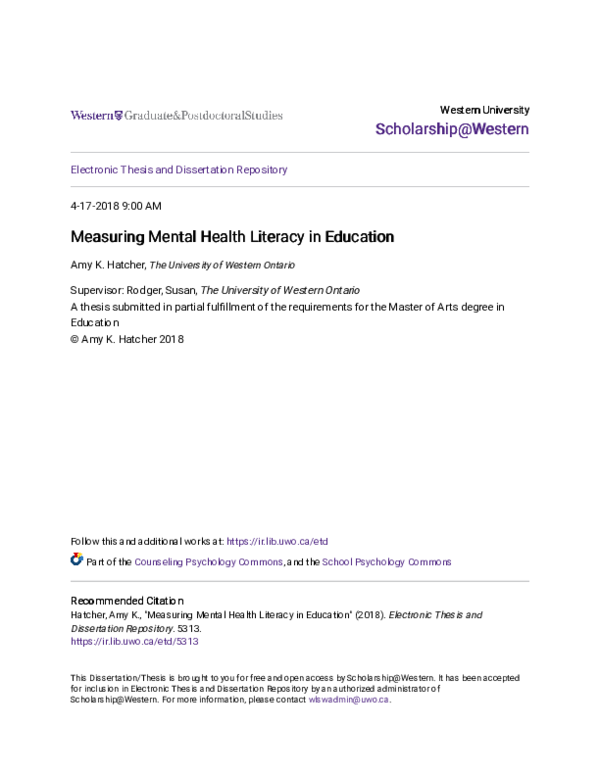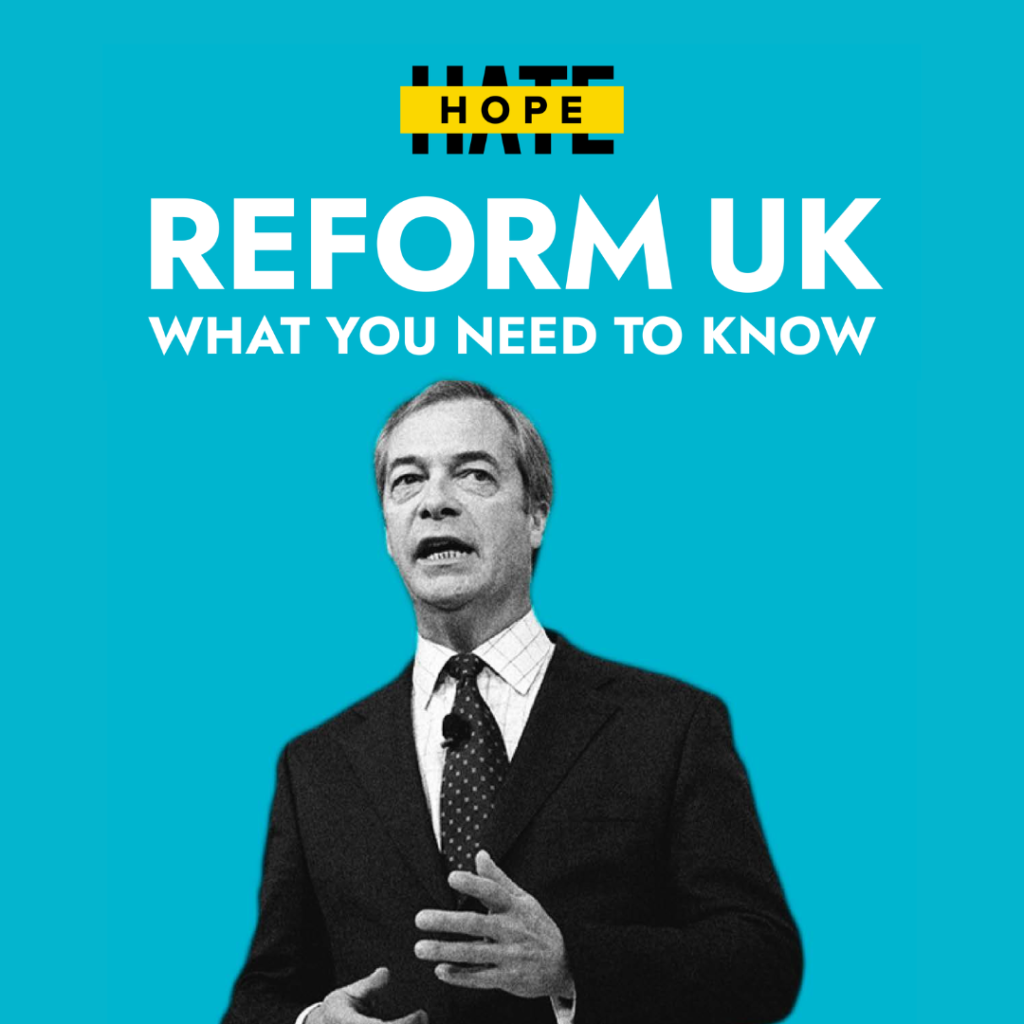Mental Health Literacy Education: A Comprehensive Guide

Table of Contents
The Importance of Mental Health Literacy Education
Improved mental health literacy is not merely beneficial; it's essential for fostering a society that supports mental wellbeing. Its impact reverberates across various aspects of individual and community health.
Reducing Stigma
Stigma surrounding mental illness remains a significant barrier to help-seeking. However, increased knowledge directly combats this stigma.
- Increased empathy: Learning about mental health conditions fosters empathy and understanding, replacing misconceptions with informed perspectives.
- Better understanding of recovery: Education helps people grasp that mental illnesses are treatable and recovery is possible, dispelling myths of incurable conditions.
- Challenging misconceptions: Mental health literacy equips individuals to challenge negative stereotypes and discriminatory attitudes towards those with mental health conditions.
For instance, studies show that stigma significantly impacts help-seeking behavior. A substantial percentage of individuals avoid seeking professional help due to fear of judgment or discrimination.
Early Identification and Intervention
Mental health literacy empowers individuals to recognize the early warning signs of mental health challenges.
- Improved outcomes: Early identification allows for timely intervention, leading to better treatment outcomes and reduced long-term consequences.
- Reduced severity of illness: Early treatment can prevent the escalation of symptoms and the development of more severe mental health conditions.
- Prevention of crises: Recognizing warning signs enables proactive steps to prevent mental health crises and promote stability.
For example, recognizing the symptoms of depression – such as persistent sadness, loss of interest in activities, and changes in sleep patterns – can lead to timely treatment, potentially preventing a major depressive episode.
Promoting Help-Seeking Behaviors
Education is key to empowering individuals to actively seek help for themselves or others.
- Knowledge of available resources: Mental health literacy equips individuals with the knowledge of available resources, such as helplines, therapists, support groups, and online platforms.
- Reducing barriers to access: Understanding the different treatment options and navigating the healthcare system becomes easier with improved mental health literacy.
- Understanding treatment options: Knowledge of various treatments, including therapy, medication, and self-help strategies, enables informed decision-making.
Examples of readily available resources include the National Suicide Prevention Lifeline, Crisis Text Line, and numerous online mental health platforms offering support and information.
Key Components of Effective Mental Health Literacy Programs
Creating effective mental health literacy programs requires a multi-faceted approach focusing on curriculum, training, and community engagement.
Curriculum Development
Age-appropriate and culturally sensitive curricula are vital for effective mental health literacy education.
- Evidence-based information: The curriculum should rely on scientific evidence and current research on mental health.
- Interactive learning activities: Engaging activities, such as group discussions, role-playing, and interactive online modules, enhance learning and knowledge retention.
- Focus on resilience and well-being: The curriculum should not only focus on mental illness but also on building resilience, promoting self-care, and fostering overall well-being.
Examples of educational approaches include workshops, online courses, school-based programs, and community outreach initiatives.
Teacher Training and Support
Equipping educators with the necessary knowledge and skills is crucial for successful program implementation.
- Professional development opportunities: Teachers need access to high-quality professional development opportunities to learn how to effectively deliver mental health literacy education.
- Ongoing support and resources: Continued support and access to updated resources are essential to ensure teachers feel confident and competent in addressing mental health topics.
- Addressing educator’s own mental health: Supporting the mental health and wellbeing of educators is equally important, creating a supportive environment for both teachers and students.
Peer support and mentorship programs can provide valuable ongoing support for teachers.
Community Engagement
Involving community stakeholders significantly enhances the impact of mental health literacy initiatives.
- Collaboration with mental health organizations: Partnerships with mental health organizations provide access to expertise and resources, ensuring the accuracy and effectiveness of programs.
- Partnerships with community leaders: Engaging community leaders, such as faith leaders, business owners, and local officials, broadens reach and promotes community ownership.
- Raising awareness through campaigns: Public awareness campaigns using various media channels can disseminate vital information and reduce stigma.
Successful community-based initiatives often involve collaborative efforts between schools, healthcare providers, community organizations, and local businesses.
Strategies for Implementing Mental Health Literacy Education
Effective implementation requires a multi-pronged approach that targets various settings and populations.
School-Based Programs
Integrating mental health education into school curricula is vital for early intervention and long-term impact.
- Early intervention: Teaching children and adolescents about mental health promotes early identification and help-seeking behaviors.
- Normalization of mental health: Openly discussing mental health in schools helps normalize seeking help and reduces stigma.
- Building resilience among young people: Equipping young people with coping mechanisms and resilience-building skills prepares them for challenges.
Many successful school-based programs incorporate interactive activities, peer support groups, and collaborations with mental health professionals.
Workplace Initiatives
Promoting mental health awareness in the workplace is crucial for creating a supportive and productive environment.
- Reduced absenteeism: Investing in employee mental health reduces absenteeism and increases overall productivity.
- Increased productivity: A supportive work environment allows employees to perform their duties more effectively.
- Supportive work environment: Providing resources and fostering a culture of openness reduces stress and improves overall wellbeing.
Progressive companies often offer mental health resources such as employee assistance programs (EAPs), stress management workshops, and mental health days.
Public Awareness Campaigns
Utilizing media and public health campaigns is essential for reaching wide audiences and raising awareness.
- Targeting diverse populations: Campaigns should consider the unique needs and cultural contexts of diverse populations.
- Utilizing various communication channels: Employing a variety of communication channels, including social media, television, radio, and print media, maximizes reach.
- Promoting positive messaging: Emphasizing hope, recovery, and the availability of support is crucial.
Successful campaigns often involve collaborations between public health agencies, media outlets, and mental health organizations.
Conclusion
Improving mental health literacy education is paramount for fostering a society that values mental wellbeing. This article has highlighted the critical importance of mental health literacy, its key components, including effective curriculum development, teacher training, and community engagement, and strategies for implementing comprehensive programs in schools, workplaces, and through public awareness campaigns. Effective mental health literacy initiatives lead to reduced stigma, early identification and intervention, and improved help-seeking behaviors. Let's work together to build a society that values mental health and empowers individuals to seek help. Learn more about mental health literacy education resources and initiatives in your area, and become a part of the solution.

Featured Posts
-
 Fortnite Game Mode Closures A Sign Of Shifting Priorities
May 02, 2025
Fortnite Game Mode Closures A Sign Of Shifting Priorities
May 02, 2025 -
 Retirement Of Cfp Board Ceo Implications For The Future Of Financial Planning
May 02, 2025
Retirement Of Cfp Board Ceo Implications For The Future Of Financial Planning
May 02, 2025 -
 Tongas U 19 Womens Football Team Secures 2025 Ofc Championship Spot
May 02, 2025
Tongas U 19 Womens Football Team Secures 2025 Ofc Championship Spot
May 02, 2025 -
 Christina Aguilera Fan Criticized For Unwanted Kiss
May 02, 2025
Christina Aguilera Fan Criticized For Unwanted Kiss
May 02, 2025 -
 A Look At Cay Fest On Film Splice Its Significance
May 02, 2025
A Look At Cay Fest On Film Splice Its Significance
May 02, 2025
Latest Posts
-
 Revised Energy Policies Analysis From Guido Fawkes
May 03, 2025
Revised Energy Policies Analysis From Guido Fawkes
May 03, 2025 -
 Energy Policy Overhaul Guido Fawkes On The Revised Direction
May 03, 2025
Energy Policy Overhaul Guido Fawkes On The Revised Direction
May 03, 2025 -
 Guido Fawkes Energy Policy Reform A Shift In Direction
May 03, 2025
Guido Fawkes Energy Policy Reform A Shift In Direction
May 03, 2025 -
 Will Reform Uks Policies Benefit Uk Farmers An In Depth Look
May 03, 2025
Will Reform Uks Policies Benefit Uk Farmers An In Depth Look
May 03, 2025 -
 Reform Uk And Agriculture Assessing Their Policies And Potential Impact
May 03, 2025
Reform Uk And Agriculture Assessing Their Policies And Potential Impact
May 03, 2025
